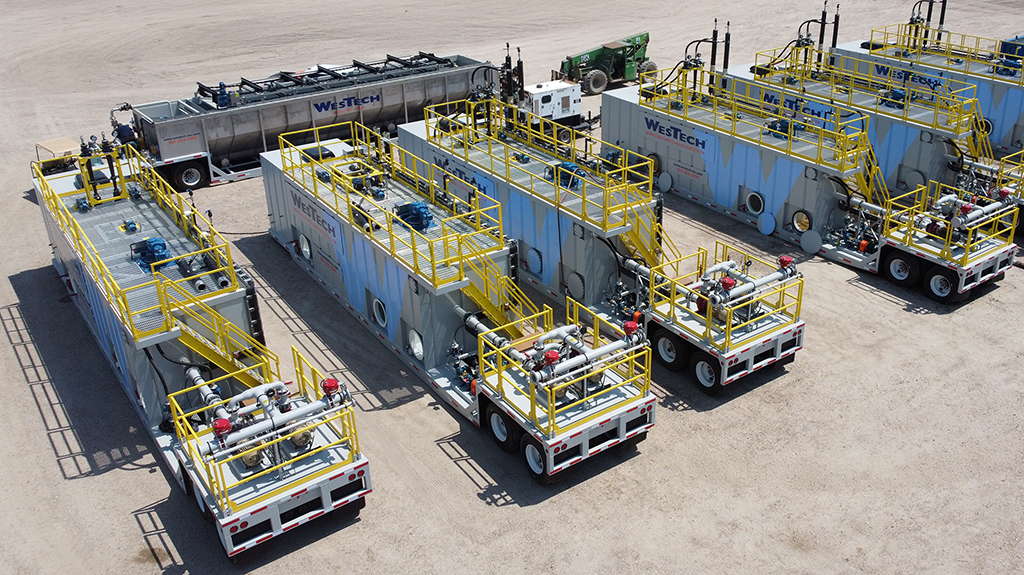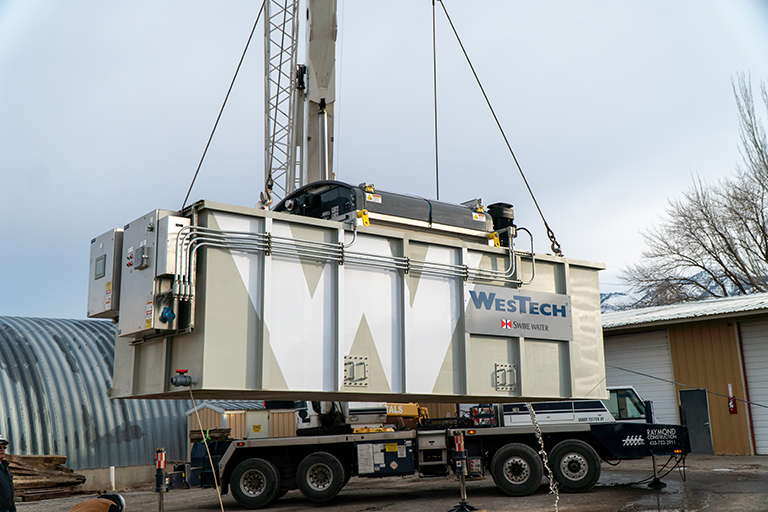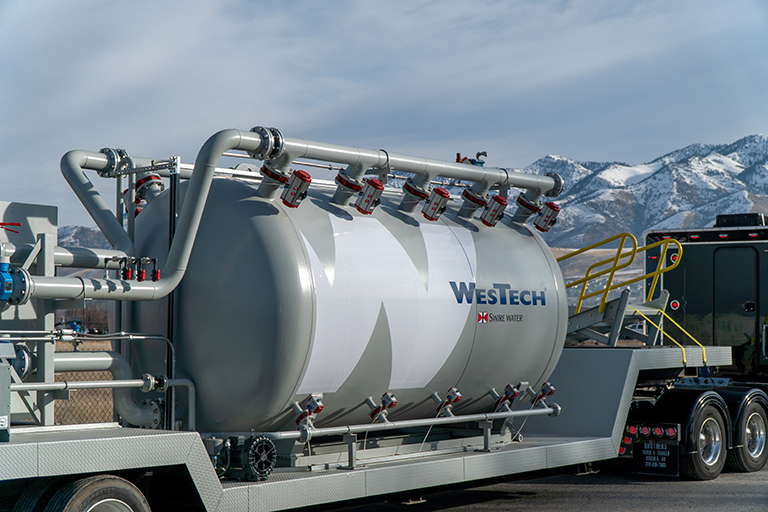Everything You Ever Wanted to Know About Mobile Water & Wastewater Treatment

Table of Contents
Contaminated water sources, aging infrastructure, and unexpected events can disrupt operations and threaten communities. But what if you could get clean water anywhere, anytime, even in an emergency? That's where mobile water and wastewater treatment come in. This article helps explain the use cases or applications where mobile water and wastewater treatment are needed and the types of commercial solutions available. (NOTE: This article focuses on larger units for industrial or municipal deployment.)
Clean Water on the Go: Understanding Mobile and Temporary Water Treatment
Imagine a water treatment plant, but portable! That's essentially what mobile water treatment is. These self-contained systems leverage the same technologies of a fixed plant but can be quickly deployed to provide temporary or supplemental water treatment wherever it is needed. They are cleverly engineered solutions to help ensure access to clean water, especially in areas where building a fixed plant isn’t feasible.
A Mobile Water and Wastewater Treatment Plant by Any Other Name
These solutions have quite a few different ways to describe them, but they are all, with a few exceptions, referring to the same sort of system.
Adjectives:
- Mobile: Indicates the unit is movable and not designed to be only a fixed asset.
- Portable: The unit is designed with mobility in mind.
- Transportable: Emphasizes the ease of moving the unit.
- Containerized: Highlights the use of shipping containers for mobility.
- Deployable: Suggests rapid setup and use in various locations.
- On-site: Indicates that the treatment is brought directly to the location where it's needed.
- On wheels: indicates the unit has wheels and can be pulled by an appropriate vehicle.
- Modular: This implies that the system can be easily expanded or modified.
- Scalable: The system can be expanded to meet increasing need.
Phrases:
- Mobile water purification system (this can also refer to a unit so small that a person could carry or transport them)
- Field water treatment system (could also refer to a much smaller unit transportable by a single person)
- Portable water system or plant
- Supplemental water treatment system or plant
- Temporary water or wastewater system or plant
- Relocatable water treatment unit
- Emergency water treatment system or plant
- Self-contained water treatment system or plant
How Long Is a Temporary or Supplemental Water Treatment Solution Needed?
The deployment length of a mobile water or wastewater treatment plant varies. Sometimes the rental is a few months, but it is not uncommon for the rental to extend into one or more years. These mobile systems are designed to function at high capacity for many years, so deployment length isn’t typically a concern. In fact, some fixed water plants deploy mobile water treatment systems to supplement their existing capacity.
Why Is It Needed?
Mobile water treatment and mobile wastewater treatment offer a flexible and rapid response to a variety of situations. From emergencies like natural disasters to planned maintenance at industrial plants, these systems provide a critical lifeline. They are a cost-effective solution for short-term and long-term needs. Additionally, government regulations require water and wastewater treatment to ensure contaminants are removed and a mobile solution is often the only cost-effective solution. Think of a power plant that has a wastewater pond. Building a permanent water treatment plant might not make financial sense, but renting a portable water treatment solution could.

The Magic Behind Mobile: How It Cleans Water
Different Types of Mobile Systems
Mobile water treatment encompasses various technologies. Clarification removes suspended solids, filtration removes impurities, reverse osmosis removes contaminants by forcing water through membranes under pressure, and other specialized processes target specific contaminants. These systems are designed to meet diverse needs based on how the water is being used and what contaminants need to be removed.
“Plug-and-Play” Technology
One of the great advantages of mobile water treatment is its ease of use. These systems often feature "plug-and-play" connections (to facilities, equipment, or systems), making setup and installation quick and straightforward. These systems usually require minimal training and maintenance.
Form Factors of Mobile Systems
Mobile systems come in various form factors. They can be mounted on wheels for easy transport, housed in trailers for larger-scale operations, or skid-mounted for more stationary applications. This flexibility makes them adaptable to many different environments and use cases.
Customization
Every water treatment challenge is unique. That's why mobile water treatment systems can be customized to meet specific site requirements and water quality standards. Our lab can test your water to help identify the best technologies and approaches for your situation, helping ensure you deploy the right water treatment solution the first time. Our customers have seen firsthand how this tailoring can eliminate deploying systems that incur unplanned costs through high maintenance or other avoidable headaches.

From Disasters to Daily Needs: Where Mobile Water Treatment Is Used
Plant Upgrades or Planned Downtime
When plants need to upgrade their existing water treatment infrastructure or experience planned downtime, mobile systems can step in, ensuring continuous operations. They are a bridge to keep things running smoothly.
Emergencies
Natural disasters can wreak havoc on water treatment facilities. Mobile water treatment is essential for providing clean water to affected communities during emergencies.
Construction Sites
Construction projects often require large amounts of clean water. Mobile water treatment provides a reliable source of water for various construction processes.
Mining
Mining operations face unique water treatment challenges, often in remote locations. Mobile systems offer a cost-effective and adaptable solution for compliant water discharge.
Power Plants
Power plants require a consistent supply of clean water, especially during peak seasons. Mobile water treatment helps power plants meet these fluctuating demands. Some power plants have ash ponds that need treatment and mobile solutions are an ideal solution.
Wastewater Treatment
Mobile wastewater treatment addresses specific applications like landfill leachate treatment and heavy metals removal. These systems are essential for protecting our environment.
Other Industries
Mobile water treatment serves a wide range of industries, including agriculture, manufacturing, and more. It's a versatile solution for diverse needs.
Mobile Water Treatment: A Flexible, Adaptable Solution
Mobile water treatment and mobile wastewater treatment are essential tools for ensuring access to clean water across multiple use cases. Their flexibility, rapid deployment, cost-effectiveness, and environmental benefits make them a vital resource for various industries and communities.